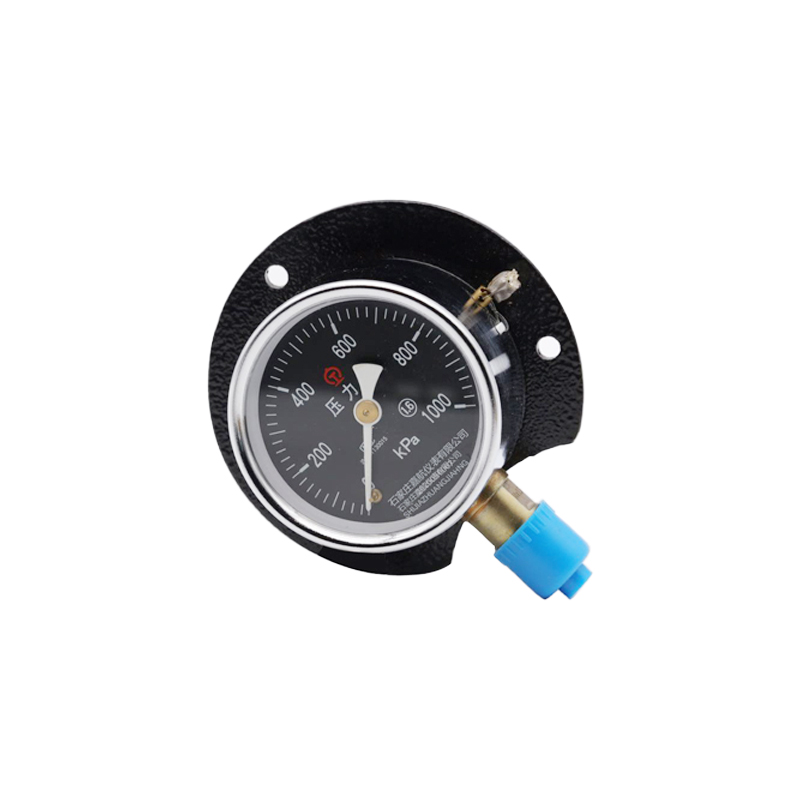
Nov . 19, 2024 13:17 Back to list
Understanding Diaphragm Pressure Gauges for Accurate Measurements and Applications
Understanding Diaphragm Pressure Gauges A Buying Guide
When it comes to measuring pressure in various applications, diaphragm pressure gauges have emerged as one of the most reliable and versatile options available on the market. Used across industries ranging from manufacturing to pharmaceuticals, these instruments are designed to provide accurate readings even in challenging environments. For anyone looking to purchase a diaphragm pressure gauge, this guide will explore the key features to consider, their advantages, and tips for making an informed decision.
What is a Diaphragm Pressure Gauge?
A diaphragm pressure gauge operates by detecting changes in pressure through a flexible diaphragm that deforms under pressure fluctuations. This deformation is transferred to a mechanical system that provides a visual representation of the pressure level on the gauge's dial. They are particularly favored for their ability to handle corrosive, viscous, or high-pressure media, making them ideal for a wide range of applications.
Key Features to Consider
1. Pressure Range Before selecting a diaphragm pressure gauge, it is essential to define the pressure range required for your specific application. Gauges are available in various ranges, from low vacuum pressures to extremely high pressures, allowing them to be tailored for different environments.
2. Material Construction The durability and compatibility of the gauge with the intended media is critical. Diaphragms can be made from materials like stainless steel, Monel, or Teflon, each offering varying levels of resistance to corrosion and temperature extremes. Choose a material that suits the chemical properties of the medium you'll be measuring.
3. Size and Mounting Options Diaphragm pressure gauges come in different sizes and mounting styles. Depending on the available space and installation requirements, you may opt for flush-mounted, panel-mounted, or direct-mounted gauges. Assess your installation area to determine the most suitable size and configuration.
4. Accuracy and Calibration The accuracy of a pressure gauge is crucial, especially in applications where precise measurements are required. Check the gauge's accuracy specifications and consider whether factory calibration or on-site calibration will be necessary for your needs.
5. Temperature Range If the process involves extreme temperatures, choose a diaphragm gauge that can accommodate those conditions. Gauges are typically rated for standard temperatures, but additional features can enhance their performance in more challenging environments.
buy about diaphragm pressure gauge

6. Connection Type The gauge's connection type is essential to ensure compatibility with your piping or equipment. Common connection types include threaded, flanged, and welded connections. Make sure to select the right one to prevent leaks and maintain a robust setup.
Advantages of Diaphragm Pressure Gauges
- Versatility Diaphragm pressure gauges can be used in a wide variety of industrial applications, making them a go-to choice for many engineers and technicians. They can measure gases, liquids, and even slurries effectively.
- Safety The design of diaphragm gauges helps minimize risks associated with pressure measurements. The sealed nature of these gauges prevents the escape of hazardous materials and ensures safe operation in difficult conditions.
- Low Maintenance Due to their robust construction and design, diaphragm pressure gauges often require less maintenance compared to other types of pressure measurement devices. This can lead to lower operational costs over time.
Tips for Buying
1. Research Before making a purchase, do thorough research on different brands and models to compare features and prices. Look for reputable manufacturers known for quality and reliability.
2. Get Expert Advice If you're unsure about which diaphragm pressure gauge is suitable for your application, consult with a specialist or a supplier who can provide insights based on your specific needs.
3. Consider Long-term Needs Think about future applications and whether the selected gauge will meet evolving requirements. Investing in a versatile and high-quality gauge can save costs in the long run.
In conclusion, diaphragm pressure gauges are an excellent choice for anyone looking for accuracy and reliability in pressure measurement. By considering the features outlined in this guide and making informed decisions, you can effectively select a gauge that will serve your needs for years to come.
-
High-Precision Mass Diaphragm Pressure Gauge - Reliable & Durable Solutions
NewsJun.10,2025
-
Explain Diaphragm Pressure Gauge Expert Guide, Top Manufacturers & Quotes
NewsJun.10,2025
-
Affordable Differential Pressure Gauge Prices in China Top Manufacturers
NewsJun.10,2025
-
Reliable Water Fire Extinguisher Pressure Gauges for Safety
NewsJun.10,2025
-
Durable Diaphragm Protection Pressure Gauges Get Quote
NewsJun.09,2025
-
WIKA Differential Pressure Gauge with Switch Reliable Monitoring & Control
NewsJun.09,2025
